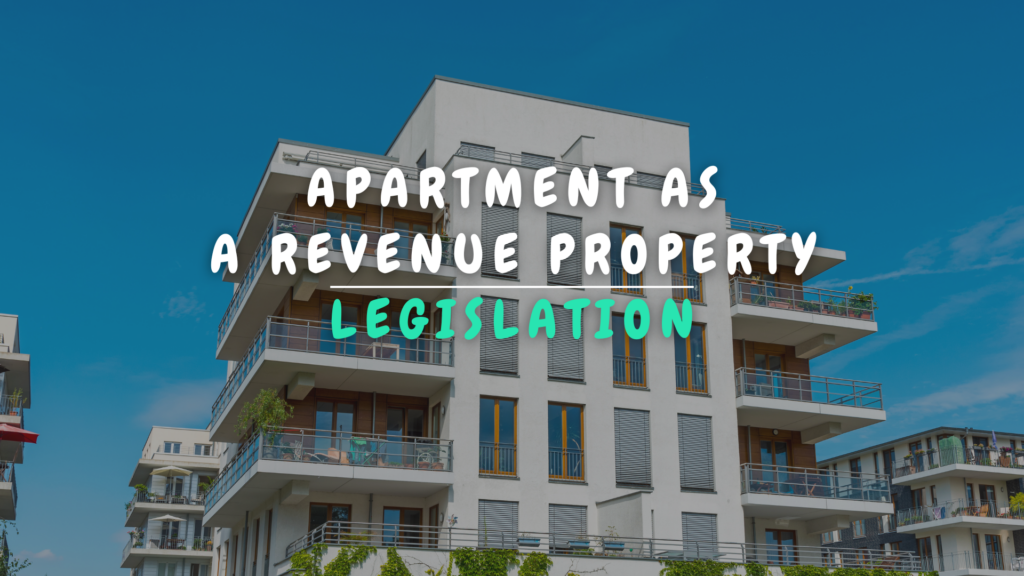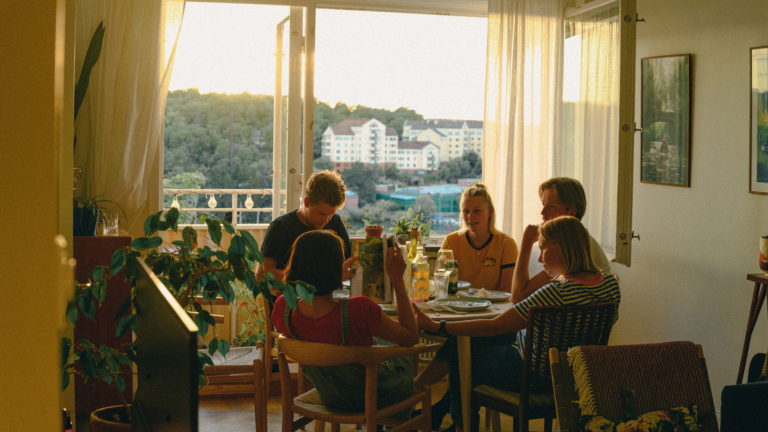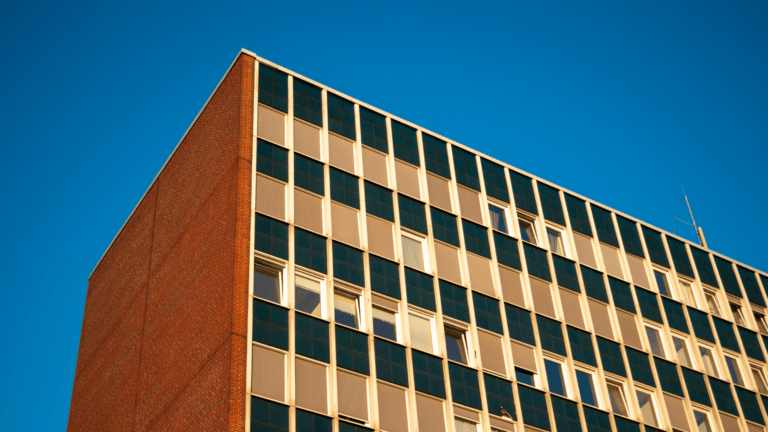Are you considering investing in real estate? An apartment as a yield property is an interesting option. Here you can read what exactly a yield property is, the pros and cons and how the process works.
Contents
- What is a revenue property?
- What are the conditions of an apartment as a revenue property?
- What are all the costs of a revenue property?
- Advantages of an apartment as a revenue property
- Disadvantages of an apartment as a revenue property
- The process of investing in a revenue property (8 steps)
1. What is a revenue property?
A revenue property is a real estate investment that you buy for the purpose of generating rental income from it. Yield properties are apartments, houses, retail properties, parking garages or even office buildings. With an apartment as a revenue property, you buy an apartment unit or block and then rent it out to tenants.
2. What are the conditions of an apartment as a revenue property?
In Flanders, conditions apply to rent out an apartment. These conditions also apply to yield properties:
- Housing Quality: The property must meet the minimum housing quality standards as described in the Flemish Housing Code.
- Energy Performance Certificate(EPC RE and EPC GD): A valid EPC is required when renting out so that tenants know how energy efficient the property is.
- Lease: Draft a written lease that complies with the Flemish Residential Tenancy Act.
- Lease Registration: Register the lease within two months of signing it.
- Rent deposit: It may not exceed three months’ rent and must be placed in an escrow account in the tenant’s name.
- Local conditions may apply to renting out an apartment. Check the rules with your municipality!
3. What are all the costs of a revenue property?
You obviously have to pay all the costs involved in buying a home. You can find these in our article All the costs involved in buying a house or condo. But note: Keep these points of interest for second homes in mind:
- Banks usually require 20% equity deposit when buying a second home instead of 10% for your first home (estimate).
- You pay 12% registration fees when you buy a second home instead of 3% for your first home.
- You pay taxes on your rented out second home: You must report the cadastral income to the ficus annually. Then the tax authorities index this amount and increase it by 40%. Of this, you have to pay a maximum of 50% as tax.
- Formula to calculate = Cadastral income x index x 1.40 = taxable income. Taxable income x 0.50 = taxes.
- You pay taxes: You have to pay taxes on the rental income from the property.
- Depending on your municipality, you also pay municipal tax on your second residence. In Oud-Turnhout, for example, this is 1,000 euros per year.
- If you own an apartment as a revenue property, you obviously also pay common charges to the trustee or VME.
4. Advantages of an apartment as a revenue property
4.1. Stabiele inkomsten
Renting out your apartment provides you with a regular, passive income stream.
4.2. Waardestijging op lange termijn
Real estate usually increases in value over the long term, making this investment grow over time. This is called capital appreciation.
4.3. Fiscale voordelen (dubbelcheck)
- Reduced VAT rate on new construction.
- Deductible expenses such as:
- Interest on your mortgage loan
- Maintenance costs
- Repair costs
- Insurance costs
- Property tax
- Management fees through a property management company
- No capital gains tax after 5 years in your possession
4.4. Diversificatie van je investeringsportefeuille
A revenue property is a good complement to other investments such as stocks or bonds.
4.5. Inflatiebescherming
Rents rise with inflation (see: rent indexation).
5. Disadvantages of an apartment as a revenue property
5.1. Hoge aanvangsinvestering
To purchase an apartment, you need a substantial initial capital. You also need to make sure the apartment is rental-ready. For example, the apartment must be clean, it must be fireproof and its energy efficiency must meet legal requirements.
5.2. Risico op leegstand
If you don’t find a tenant for a while, you miss out on some income.
5.3. Grote verantwoordelijkheid
As the owner, you are responsible for the maintenance and any repairs of the apartment. Renting out an apartment involves a lot of administrative work. In addition, you have to set aside a lot of time to promote your apartment, look for potential tenants, speak to potential tenants during a site visit and draft a lease. In addition to time, you also have to pay for these aspects.
5.4. Mogelijkheid op geschillen
Difficult tenants sometimes lead to legal disputes. So know well what is in the rental laws and make clear agreements with the tenant in advance that will prevent discussions!
5.5. Je hebt een gedeelde verantwoordelijkheid
As an apartment owner, you are a member of a Co-Owners’ Association (VME). These are all the owners of all the apartments within the building. For major changes, you need majority approval from the VME. So just renovating is not okay. Read the general rent legislation rules in our article: Rental legislation Flanders: what is allowed and what is not allowed according to the rental property rules?

6. The process of investing in a revenue property
Want to invest in an apartment as a revenue property? Then go through these 8 steps.
Step 1: Research the real estate market
Start by studying the local real estate market:
- What is the average rent?
- What type of apartment is renting quickly? What type of tenants do you want to appeal to (watch out for the anti-discrimination law)? Studios, rooms, cohousing apartments, care apartments (care living), student lots, expats, …?
- What location is sought after by potential tenants? The more popular the location is (e.g. by the sea, in the Ardennes or student town), the less likely you are to have vacancies.
- What is the EPC value of the apartment? What condition is the apartment in? A better condition means that you need to do fewer renovations in the short term.
Step 2: Arrange your financing
- What is your budget?
- How much of your own deposit do you have available?
- What are your financing options (e.g., mortgage loan)? Are the repayment amounts and terms realistic? Seek advice from banks and mortgage brokers.
Step 3: Find a suitable apartment
- Look for an apartment that meets your criteria.
- Compare the value of the apartment with similar properties.
- Check whether the property is currently rented and at what rent.
- Compare the cost to your income and calculate your return.
Formula for calculating your return:
Return = total rental income / (total purchase price + costs) * 100
Step 4: Due diligence
- Have the property inspected by an expert for hidden defects (if desired).
- Check the legal issues involved in purchasing a revenue property.
Step 5: Purchase
- Negotiate the price.
- Make an offer.
- If agreed, sign the purchase agreement.
- Afterwards, you complete the purchase at the notary.
Step 6: Prepare the apartment for rental
- Make the apartment rental-ready.
- Draft a lease.
Step 7: Find a tenant
- Advertise your apartment with a classified ad.
- Invite potential tenants.
- Screen potential tenants carefully, but beware of (unconscious) discrimination.
Step 8: Manage and maintain your apartment
- Create a good relationship with your tenant(s).
- Maintain your apartment on a regular basis.

Sources: Municipality of Oud-Turnhout, Mortgage, Infinimo, Kwalis, Syrus
Would you like to cite this article as a source? Then use:
Stiasteny, L. (2024, Nov. 27). Apartment as revenue property under legislation. Apartment.com. Accessed on (date XX/XX/202X), from https://www.appartement.be/appartement-als-opbrengsteigendom-volgens-wet/
Related articles:
- The cadastral income according to legislation
- 4 Types of leases according to legislation
- Register lease in 4 steps according to legislation
- Property for sale or rent?
- Rental legislation Flanders: what is allowed and what is not allowed under rental property rules?






